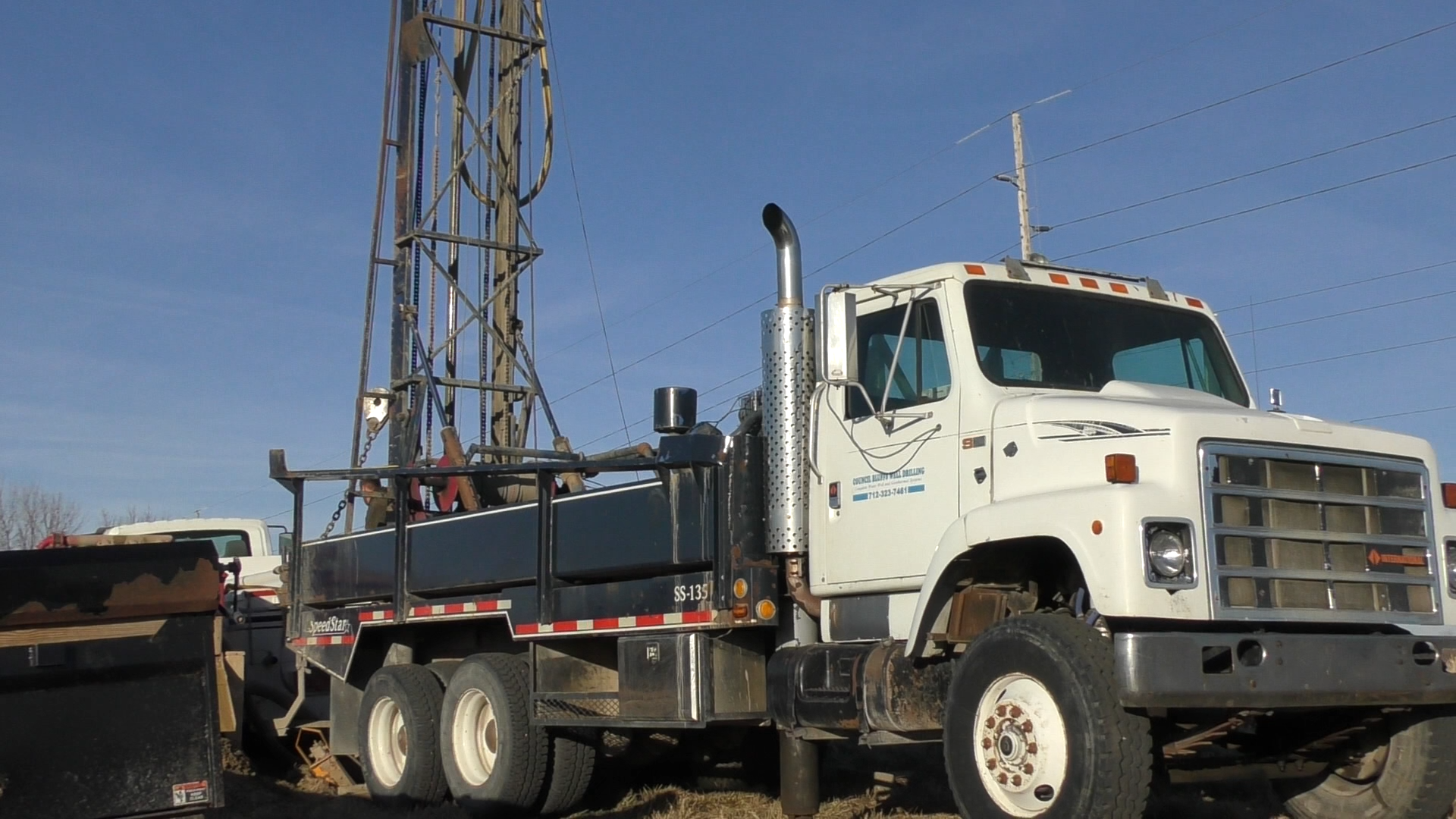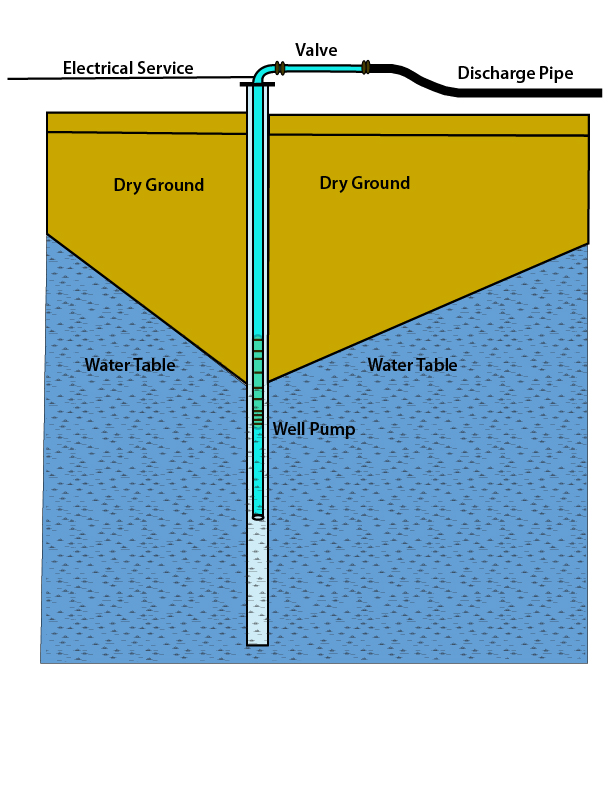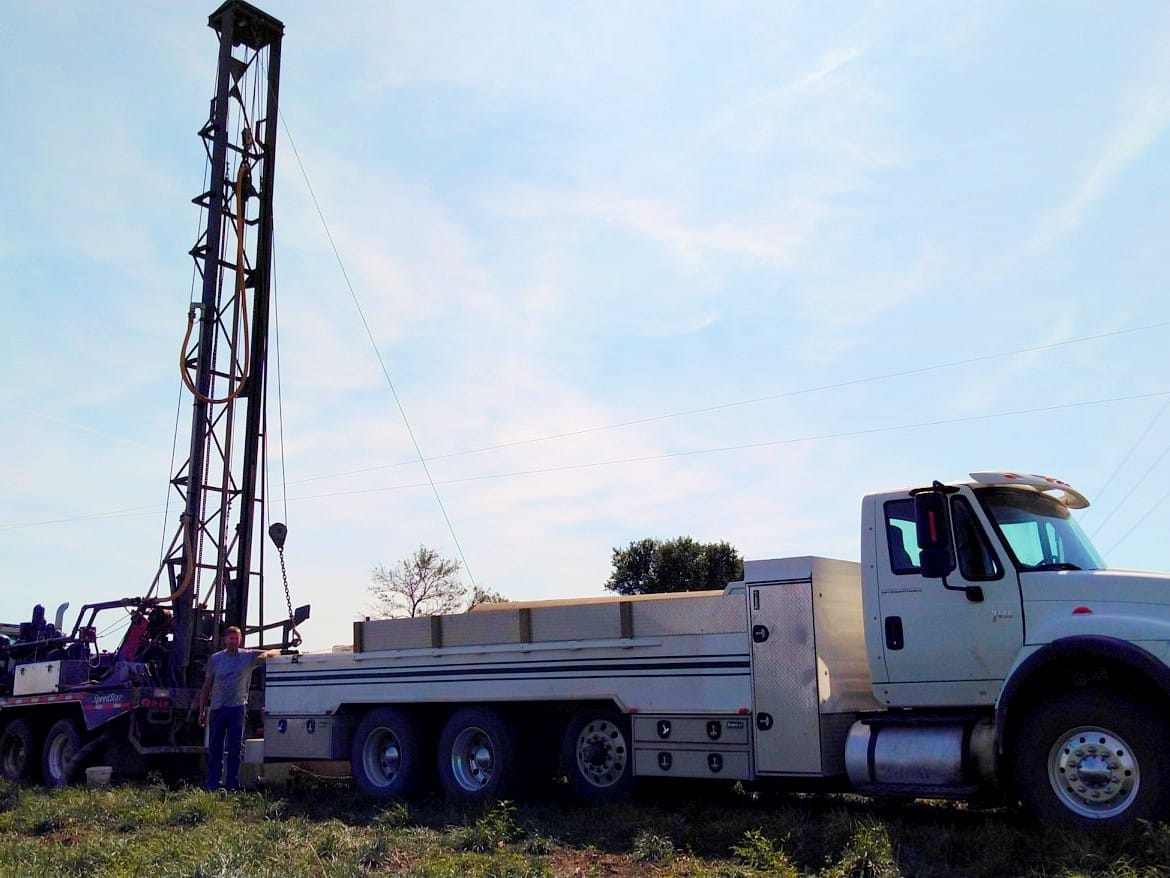Dewatering Wells


Dewatering Wells are an efficient solution for managing water table levels in southwest Iowa
In Iowa, constructing or servicing a private water supply well mandates the involvement of a DNR-certified well contractor. These certified professionals ensure that well services—such as drilling, pump installation, and system repairs—adhere to safety protocols and prevent contamination. You can verify a contractor’s certification through the Iowa DNR Operator Certification database.
Much more information below.


Dewatering Wells
- Production Plants
- Construction Sites
- Agriculture Sites
- Commercial Sites
- High Volumne Pumps, tank and systems
- Large Pump Services
- Pumps
- Well inspections
- Water testing
- Well Abandonment – sealing and filling
Dewatering Wells in Southwest Iowa: A Vital Tool for Construction, Agriculture, and Water Management
Southwest Iowa, with its rolling hills, loess soils, and varied geology, poses unique challenges for water management. One key technique used in this region to manage groundwater and surface water interaction is the use of dewatering wells. Dewatering wells play a crucial role in enabling safe and efficient construction, supporting agricultural productivity, and maintaining residential and commercial infrastructure.
What Are Dewatering Wells?
Dewatering wells, also known as deep wells, are vertical shafts drilled into the ground that are designed to remove groundwater from the subsurface. These wells are typically equipped with submersible pumps that actively lower the groundwater table in a localized area. The primary goal of dewatering is to provide a dry and stable work or living environment, preventing water-related complications.
Dewatering in Construction
In the construction sector of southwest Iowa, dewatering wells are commonly employed during projects that require deep excavations. These may include foundations for buildings, utility installations, tunnels, basements, and underground parking structures. Southwest Iowa’s high water table in certain locations and clay-heavy soil make groundwater control essential to ensure safety and project success.
Applications in Construction:
- Foundation Work: Excavating for building foundations below the natural water table can be hazardous without dewatering. Groundwater can flood the site, destabilize the soil, and increase the risk of structural failure. Dewatering wells prevent these issues by keeping the excavation site dry.
- Utility Installation: When installing water lines, sewer pipes, or electrical conduits, dewatering allows for trenching and pipe placement without water interference.
- Infrastructure Projects: Large-scale infrastructure developments such as highways, bridges, and railroads often require dry subgrades for stability and compaction. Dewatering ensures suitable working conditions.
Southwest Iowa has seen several road and infrastructure improvements over the years where dewatering wells have played a crucial part. With increased federal funding for rural infrastructure, managing groundwater is becoming even more important in ensuring project longevity.
Dewatering in Agriculture
Although dewatering wells are more commonly associated with construction, they also find practical use in agriculture, especially in areas of southwest Iowa where poor drainage and high groundwater can hinder productivity.
Applications in Agriculture:
- Soil Drainage: Fields with high water tables or inadequate natural drainage benefit from dewatering to create optimal growing conditions. Saturated soils can prevent root development and limit access to oxygen, affecting crop yields.
- Livestock Facilities: In large animal farming operations, dewatering wells are used to keep barns, feedlots, and waste storage facilities dry and operational. Standing water not only affects the health of the livestock but also creates maintenance challenges.
- Irrigation System Management: In areas with complex irrigation and drainage systems, dewatering wells can be used to manage excess water, especially following periods of heavy rainfall.
Southwest Iowa, known for its corn and soybean fields, often faces challenges with seasonal flooding or spring thaws that saturate farmland. Dewatering wells, in conjunction with tile drainage and surface grading, help maintain field usability throughout the growing season.
Dewatering for Residential and Commercial Use
In residential and commercial settings, dewatering wells serve a preventive and protective role. They are often used to mitigate flooding risks, protect basements and crawlspaces, and maintain structural integrity.
Residential Applications:
- Basement Waterproofing: Homes built in low-lying areas or with basements below the water table benefit from dewatering systems. Wells placed strategically around the home help reduce hydrostatic pressure on foundation walls.
- Septic System Protection: High groundwater can lead to septic system failure. Dewatering wells keep the drain fields functional by maintaining separation between the effluent and groundwater.
- Stormwater Management: During intense rain events, dewatering wells can assist with quickly diverting water away from critical areas.
Commercial Applications:
- Building Maintenance: Commercial properties, especially those with underground parking or mechanical systems, use dewatering to prevent costly water damage.
- Retail and Industrial Sites: Facilities that handle sensitive materials or require dry storage conditions implement dewatering as part of their building design.
- Groundwater Control for Expansions: Commercial sites undergoing expansions often require temporary or permanent dewatering systems to manage altered hydrological conditions.
Environmental and Regulatory Considerations
In Iowa, the construction and use of dewatering wells are regulated by the Iowa Department of Natural Resources (DNR). The DNR ensures that wells are installed by certified contractors and that groundwater withdrawal does not negatively impact the environment or neighboring properties.
Key Regulations:
- Permitting: Large-scale dewatering operations typically require a water withdrawal permit.
- Water Quality Monitoring: Dewatering discharges may be subject to water quality standards, particularly if they are discharged into nearby streams or wetlands.
- Well Construction Standards: Dewatering wells must meet specific construction and sealing standards to prevent cross-contamination and aquifer degradation.
Environmental stewardship is a growing priority in southwest Iowa, with residents and policymakers increasingly attentive to sustainable water use practices. Dewatering operations must balance economic development with groundwater conservation.
Technological Advancements
Modern dewatering systems are equipped with smart pumps, telemetry, and automated controls that improve efficiency and responsiveness. These advancements reduce labor costs, increase safety, and allow for real-time monitoring of water levels and pump performance.
Innovative technologies are also being adopted to treat water discharged from dewatering wells, making it suitable for reuse in irrigation, dust control, or groundwater recharge, further promoting sustainable practices.
Dewatering wells are a vital water management tool in southwest Iowa. From construction sites in Council Bluffs and Clarinda to agricultural lands near Shenandoah and Red Oak, they play a key role in ensuring productivity, safety, and sustainability. As climate variability and development pressures increase, the use of dewatering systems will become even more critical. By adhering to regulatory standards and embracing new technologies, residents and businesses in southwest Iowa can continue to use dewatering wells as an essential resource for managing their water challenges.

Commercial Service
Volume or flow issues?We can help!

